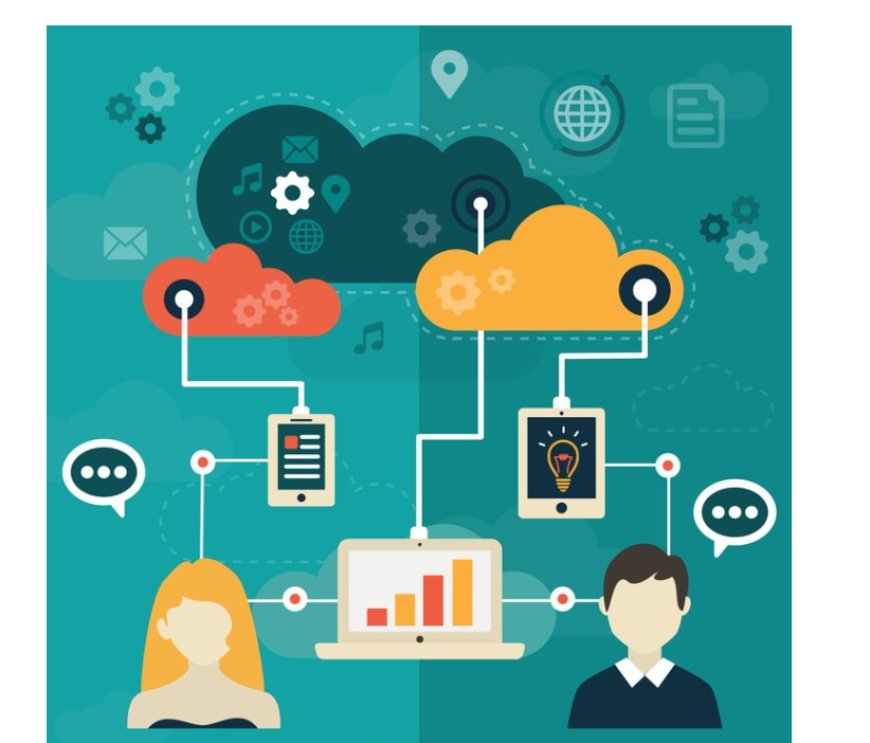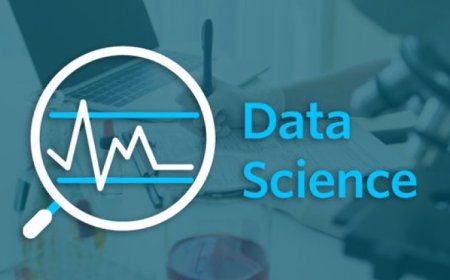Insights for Impact: Data Science and the Social Revolution
Explore the intersection of Data Science and the Social Revolution. Uncover profound insights that drive positive impact in this dynamic exploration of data-driven societal transformation.

In the 21st century, we find ourselves in the midst of a revolution – not one born of barricades and battle cries, but rather of data and digitalization. The Social Revolution is unfolding in the realm of information and connectivity, and at its core is the transformative power of data science. This fusion of technology and societal change is reshaping the way we perceive, engage with, and address pressing issues. In this era, the mantra is clear: Insights for Impact.
The Rise of Data Science
The rise of Data science marks a profound shift in how we navigate and understand the increasingly complex landscape of the information age. In a world inundated with data, ranging from social media interactions to sensor-generated information in smart cities, the need to extract meaningful insights has never been more critical.
Data science emerges as the catalyst for transforming raw data into actionable knowledge. It amalgamates statistical methodologies, machine learning algorithms, and domain expertise to discern patterns, trends, and correlations within vast datasets. This interdisciplinary field not only embraces the technical prowess needed to handle big data but also requires a nuanced understanding of the contexts from which the data originates. As organizations and industries recognize the potential of data-driven decision-making, data science evolves from being a niche discipline to a cornerstone of innovation, efficiency, and informed strategies.
Its ascendancy is not merely a technological phenomenon; it represents a paradigm shift in our approach to problem-solving, decision-making, and understanding the intricacies of the interconnected world we inhabit. The rise of data science is emblematic of our quest to unravel the mysteries embedded within the vast sea of information that surrounds us, paving the way for a future where insights gleaned from data drive transformative change across various sectors.
Understanding Social Revolution
Understanding the Social Revolution necessitates delving into the multifaceted dynamics that propel transformative changes across societies. At its core, the Social Revolution is an intricate interplay of economic, environmental, and social forces reshaping the fabric of our collective existence. It encompasses the seismic shifts in attitudes, values, and power structures that redefine societal norms and expectations.
Examining the Social Revolution entails a nuanced exploration of issues such as economic inequalities, climate change, healthcare access, and social justice. It involves recognizing the ripple effects of globalization, technological advancements, and cultural movements that collectively contribute to a new narrative of societal progress.
To comprehend the Social Revolution is to navigate through the complexities of contemporary challenges, understanding how they intersect and influence one another in the ongoing evolution of our global community. It's an endeavor to decipher the patterns of change that underpin the quest for a more just, sustainable, and equitable world.
Unveiling Inequities
Unveiling Inequities within the context of data science and the social revolution refers to the process of using data analytics to uncover and expose systemic disparities and inequalities within societies. It involves delving into large datasets to reveal patterns, trends, and correlations that highlight unequal distribution of resources, opportunities, or outcomes among different demographic groups.
Demographic Analysis
-
Data scientists examine demographic data, which may include information such as race, gender, socioeconomic status, and educational attainment.
-
By scrutinizing this data, patterns of disparity become apparent, providing insights into which groups may be disproportionately affected by social, economic, or healthcare inequalities.
Income Disparities
-
Analysis of income and wealth distribution can uncover economic inequities. This involves examining wage gaps, access to economic opportunities, and disparities in financial well-being.
Access to Resources
-
Data science helps in assessing access to essential resources such as healthcare, education, and employment opportunities.
-
Identifying areas or communities with limited access to resources can inform targeted interventions to address these disparities.
Social Justice Issues
-
The analysis may extend to areas related to social justice, including criminal justice, housing, and representation.
-
By examining data related to law enforcement, incarceration rates, housing policies, and political representation, disparities and systemic biases can be brought to light.
Predictive Power in Healthcare
Predictive power in healthcare represents a paradigm shift in how we approach the management and delivery of medical services. At its core, predictive power involves the use of data science and advanced analytics to forecast health outcomes, anticipate disease patterns, and optimize patient care. This transformative capability enables healthcare professionals to move beyond reactive interventions and embrace a proactive and personalized approach.
By leveraging historical patient data, lifestyle factors, and genetic information, predictive analytics can identify individuals at risk of specific diseases, allowing for early intervention and preventative measures. For instance, in the context of chronic conditions like diabetes or cardiovascular disease, predictive models can alert healthcare providers to potential complications, enabling timely adjustments to treatment plans. This not only improves patient outcomes but also contributes to the efficient allocation of healthcare resources.
In the context of infectious diseases, as highlighted during the COVID-19 pandemic, predictive models play a crucial role in forecasting the spread of the virus, guiding public health measures, and optimizing resource allocation to mitigate the impact on healthcare systems. Ultimately, the predictive power in healthcare is a tool that empowers healthcare professionals with foresight, offering the potential to revolutionize disease management and usher in a new era of preventive and personalized medicine.
Harnessing Data for Environmental Stewardship
Climate Monitoring: Data science enables real-time monitoring of climate parameters, including temperature, precipitation, and sea levels, providing a comprehensive understanding of environmental changes.
Predictive Modeling: Advanced analytics and machine learning algorithms help create predictive models for climate scenarios, aiding in anticipating and mitigating the impacts of climate change.
Precision Agriculture: Data-driven insights optimize agricultural practices, promoting resource efficiency, minimizing environmental impact, and enhancing overall sustainability in farming.
Renewable Energy Optimization: Data science is used to analyze energy consumption patterns, optimize energy grids, and enhance the efficiency of renewable energy sources, contributing to a more sustainable and eco-friendly energy landscape.
Biodiversity Conservation: By analyzing ecological data, data science aids in identifying biodiversity hotspots, tracking endangered species, and designing conservation strategies to protect ecosystems and preserve biodiversity.
Carbon Footprint Analysis: Organizations leverage data science to assess and reduce their carbon footprint, identifying areas for improvement in energy consumption, transportation, and production processes.
Smart Urban Planning: Data-driven insights inform urban planning by optimizing infrastructure development, reducing pollution, and creating more environmentally friendly cities with improved quality of life.
Ethical Considerations
In the realm of data science, ethical considerations are the guiding principles that underscore the responsible use of data. As we harness the power of algorithms and analytics to glean insights from vast datasets, it becomes imperative to tread carefully, ensuring that the benefits of data-driven decision-making do not come at the expense of privacy, fairness, or inclusivity. Ethical considerations in data science encompass a spectrum of issues, from safeguarding individual privacy and avoiding algorithmic biases to fostering transparency in decision-making processes.
Striking the delicate balance between innovation and ethical responsibility is paramount, as data scientists grapple with the immense power that comes with interpreting and influencing societal narratives through data. Ethical considerations serve as the moral compass that steers the course of data science endeavors, ensuring that the pursuit of knowledge and progress aligns with the values of integrity, accountability, and respect for the rights of individuals.
Empowering the Change-makers
In the dynamic landscape of the Social Revolution, empowering change-makers is pivotal for driving positive transformation. These individuals and organizations, committed to fostering societal change, are the driving force behind progress. Data science plays a crucial role in this empowerment by providing change-makers with the tools they need to make informed decisions. Armed with data-driven insights, NGOs, governments, and advocacy groups can tailor their strategies to address specific challenges effectively.
This empowerment extends beyond informed decision-making; it amplifies the impact of their initiatives, enabling change-makers to navigate complexities and bring about tangible, lasting change in communities. In essence, empowering change-makers with the analytical prowess of data science is an investment in the realization of a more equitable and just world.
The Future Landscape
The Future Landscape" in the context of the blog titled "Insights for Impact: Data Science and the Social Revolution" refers to the evolving and prospective role of data science in shaping our society and addressing critical issues in the coming years. It's about what we can anticipate in terms of developments, challenges, and opportunities for data science in the near and distant future. Here's a more detailed explanation of this concept:
Emerging Technologies: The future landscape of data science involves the integration of emerging technologies such as artificial intelligence, machine learning, and quantum computing. These technologies will enable even more sophisticated data analysis and pattern recognition, opening up new possibilities for problem-solving and innovation.
Deeper Insights: Data science is expected to provide increasingly nuanced and profound insights into complex issues. As algorithms become more advanced, data scientists will have the ability to delve deeper into data, revealing subtler patterns and connections that were previously difficult to uncover.
Predictive Power: The future landscape of data science will feature enhanced predictive capabilities. This means not only predicting events but also understanding the potential consequences of actions and policies. These predictions will be invaluable for areas such as climate modeling, economic forecasting, and healthcare management.
Ethical and Responsible Data Use: As data science becomes more pervasive, there will be an even greater emphasis on ethical and responsible data use. The future landscape will require a heightened awareness of privacy, security, and bias mitigation to ensure that data-driven insights are used for the benefit of all and do not harm or discriminate against any individuals or groups.
Cross-Disciplinary Collaboration: In the future, data science will increasingly intersect with various disciplines. Collaboration between data scientists and experts in fields such as medicine, environmental science, social sciences, and policy will become more commonplace, leading to more comprehensive and holistic approaches to problem-solving.
Global Impact: The future landscape of data science will extend its reach globally. Data science insights and solutions will be instrumental in addressing global challenges like poverty, climate change, and pandemics. The interconnectedness of the world will make it necessary to develop data-driven strategies that have a positive impact on a global scale.
In the tapestry of the Social Revolution, data science is the weaver of insights that have the potential to reshape societies. It is not merely a tool but a transformative force, enabling us to address the challenges of our time with unprecedented precision and foresight. As we harness the power of data for positive change, let us do so with a collective commitment to ethics, equity, and a shared vision of a better, more inclusive future. Insights for Impact – the mantra of data science in the Social Revolution.










































